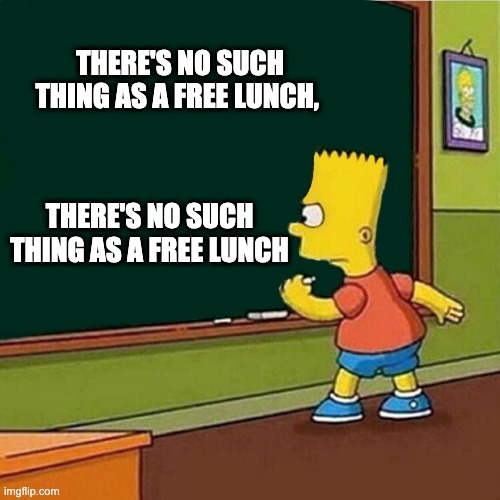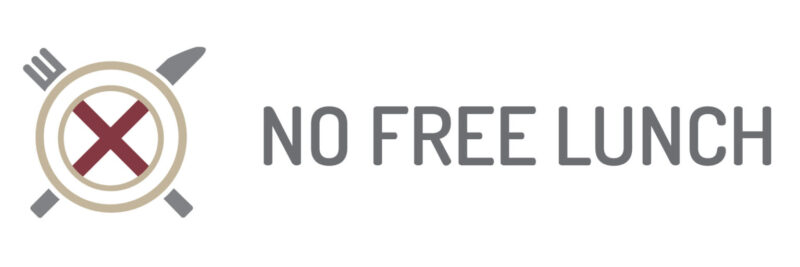Nothing can ever be free – gratis. It may seem like a strange statement, but with help from a Greek geek and a Belgian boffin, we can try and explain why.

Epicurus & free lunch thinking
It shouldn’t be a surprise that we trace free lunch philosophy back to Ancient Greece. Great Greek thinkers like Epicurus had an inkling that the universe, and everything in it, was a closed system composed of units of matter.
the sum total of things was always such as it is now, and such it will ever remain.
Epicurus, Greek Philosopher
Now, you might wonder what ancient Greek musings have to do with modern ideas around financial gravity, but bear with me.
Epicurus was on to something, but after the Greek and Roman Empires collapsed, science lost its way.
In the intervening Dark Ages, alchemists strived for centuries to find the ultimate free lunch; the secret to eternal life and a way to turn widely available base metals into something much scarcer and more valuable – gold.
Amazingly, one of the most ardent believers in alchemy was Isaac Newton, who spent more time attempting to spoof chemistry than developing his ideas on gravity. But the Renaissance also brought a focus back to proving Epicurus right.
What appears a wonder is not a wonder
In 1586, a Flemish mathematician called Simon Stevin wrote a book which contained a thought experiment. What force would be required to maintain beads on two inclined planes?
Maybe our man Stevin needed to get out more, but what seemed like a dull night in thinking about jewellery provided a huge contribution to scientific thinking and our no free lunch philosophy.
Without being able to run the actual numbers, Stevin realised that the beads couldn’t simply hang there of their own accord. So, in a roundabout way, Stevin proved that perpetual motion was impossible, or as he described it, ‘Wonder en is gheen wonder – what appears a wonder is not a wonder’.
This is basically Belgian for ‘there is no such thing as a free lunch’.
- Learn more about the meaning of the no free lunch phrase
We’d have to wait 100 years for a formal articulation of why perpetual motion was impossible when, in 1722, Émilie du Châtelet first proposed and tested the law of conservation of energy, getting us closer to connecting the scientific history lesson to why nothing is ever free [trust me].
Energy can neither be created nor destroyed; rather, it can only be transformed or transferred from one form to another.
Émilie du Châtelet, 1772

From energy conservation to money
What Stevin and du Chatelet discovered was the scientific basis of the 2nd law of thermodynamics: energy cannot appear out of thin air.
There is a fixed amount of energy in the universe, produced at its creation, and it just gets transferred or transformed.
Much, but not all, of our own individual energy gets transformed into money so that we can transport our labour across space and time.
The mistake we make is measuring the value of things only in monetary terms – which causes a lot of misconception because money is just a tool, an energy transformation tool.
So, if we measure everything in terms of energy, it becomes easier to understand why, in a literal sense, nothing can ever really be free.
Futurists like Elon Musk think AI can deliver a post scarcity society but have yet to flesh out the details of that abundant future. Until then, the current rules apply:
- We know that energy cannot be created out of nothing
- We can only transfer or transform our own energy – which is scarce
- We mostly measure value in terms of energy translated into money (the 9-5 grind)
- But every action uses energy, so it has value
- And everything we do involves choosing to use some of that scarce energy at the expense of the next best alternative option – the opportunity cost
So it isn’t just annoying pedantry to say that nothing can never be free.
No Free Lunch
There is no such thing as a free lunch, but if you’re hungry to find out why, we’re here to help.
You can learn the meaning and origin of the no free lunch concept, as well as the broader philosophy behind the idea that nothing can ever be regarded as free.
We look at our relationship with money and truth, examining all of the supposed shortcuts, life hacks and get-rich-quick schemes.
